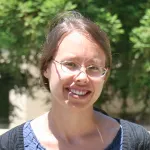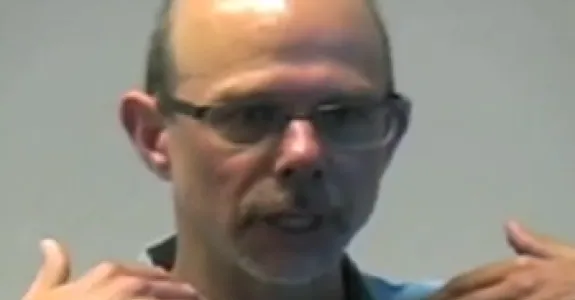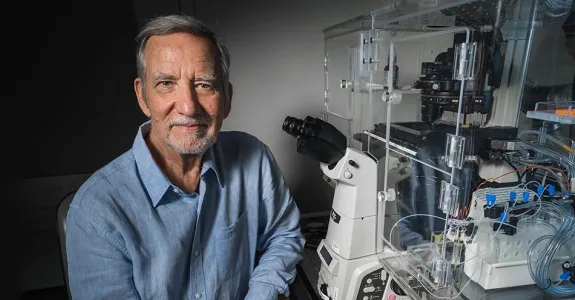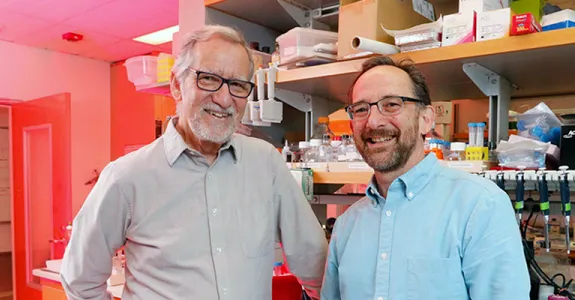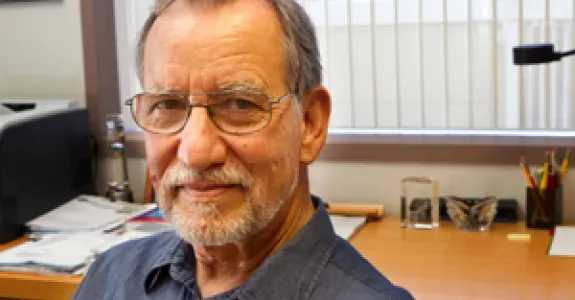
Dr. James Spudich, Douglass M. and Nola Leishman Professor of Cardiovascular Disease, is in the Department of Biochemistry at Stanford University School of Medicine. He received his B.S. in chemistry from the University of Illinois in 1963 and his Ph.D. in biochemistry from Stanford in 1968. He did postdoctoral work in genetics at Stanford and in structural biology at the MRC Laboratory in Cambridge, England. From 1971 to 1977 he was Assistant, Associate, and Full Professor in the Department of Biochemistry and Biophysics, University of California, San Francisco. In 1977 he was appointed Professor in the Department of Structural Biology at Stanford University. Dr. Spudich served as Chairman of the Department of Structural Biology from 1979-1984. Since 1992 he has been Professor in the Department of Biochemistry, and served as Chairman from 1994-1998. He has held a joint appointment as Professor in the Department of Developmental Biology since 1989. From 1998 to 2002, he was Co-Founder and first Director of the Stanford Interdisciplinary Program in Bioengineering, Biomedicine and Biosciences called Bio-X. At present he is also an Adjunct Professor at the National Center for Biological Sciences, Tata Institute of Fundamental Research and InStem in Bangalore, India.
Dr. Spudich has given more than 40 named lectureships and keynote addresses, including the First Annual Lecture of the series "The James Spudich AHA Research Committee Lecture,” named in his honor; the Pauling Lecture, Stanford; the Paul Dudley White Lecture, Mass General Hospital of Harvard University; the DeWitt Stetten, Jr. Lecture, NIH; the Meyerhof Lecture, Heidelberg; the Keith R. Porter Lecture, ASCB; the Hans Neurath Lecture, University of Washington; the National Lecture, Biophysical Society; the Mayer Lecture, MIT; Plenary Lecture (shared with Aaron Klug), Madrid International Congress on Cell Biology; the Friday Evening Lecture, Woods Hole; and the Cori Lecture, Washington University.
Dr. Spudich was a recipient of a Guggenheim Fellowship in 1978. He was elected to the National Academy of Sciences in 1991. He is also a member of the American Academy of Arts and Sciences, and the American Association for the Advancement of Science. Dr. Spudich received the American Heart Association Basic Research Prize, the Alexander von Humboldt Research Award, the Biophysical Society Lifetime Research Career Award, the Lewis S. Rosenstiel Award for Outstanding Research Achievement in the Field of Basic Medical Studies, the American Chemical Society’s Award for the Chemistry of Biological Processes, the Biophysics Society Award for Outstanding Investigator in the Field of Single Molecule Biology, the E.B. Wilson Medal, the Arthur Kornberg and Paul Berg Lifetime Achievement Award in Biomedical Sciences, the Wiley Prize in Biomedical Sciences, the Ahmed H. Zewail Award and the Massry Prize. In 2012, he received the Albert Lasker Basic Medical Research Award.



